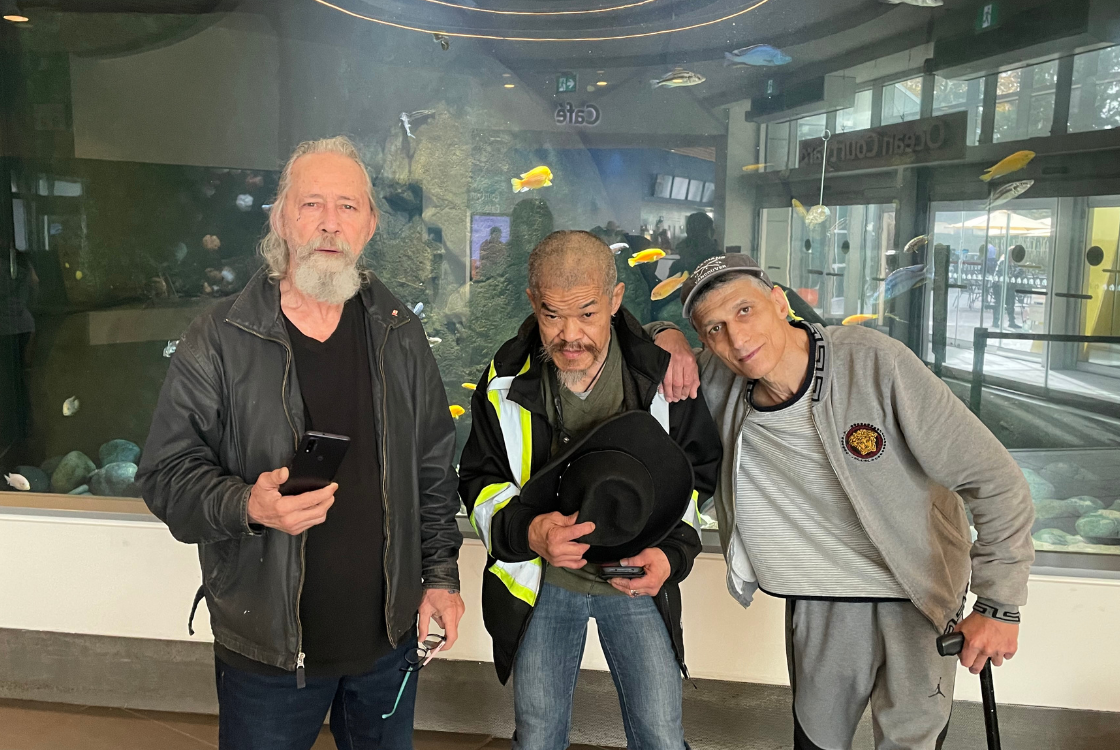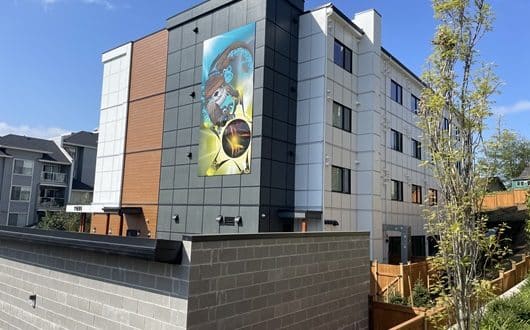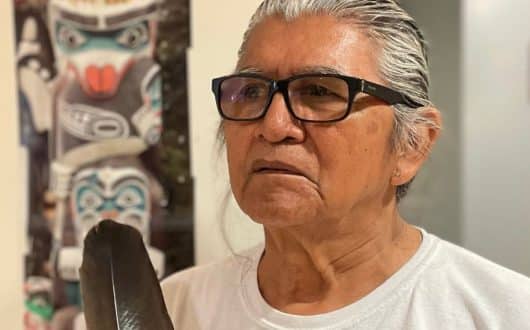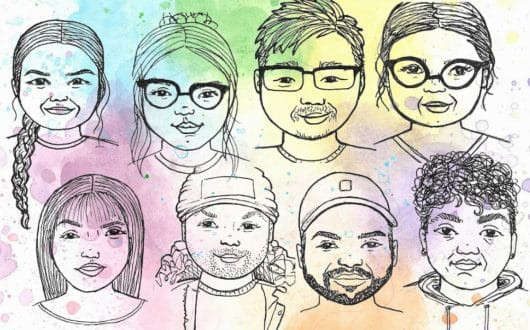Putting the community in Community Mental Health
What does community mental health mean?
Community-based mental health means providing care – in whatever form that might take – right within the community, rather than in a hospital or clinical setting. It involves promoting and protecting the health of individuals and communities through: preventive measures, healthcare services, and the creation of supportive environments. It gives people a solid foundation for recovery, and can prevent further health and mental health issues from developing.
For Coast, community-based mental health means providing homes, support and employment right in the community. But it also means being good neighbours and offering support beyond the doors of our sites.
Housing First
Burnham Place, in Vancouver’s Mt Pleasant neighbourhood, is home to 68 folks at risk of, or experiencing homelessness. Many of them are living with mental illness and substance use disorders.
“We’re housing people without the condition that they be abstinent. We often see them recover at a faster rate than they would if we put all these conditions on them,” explains Edward Tang, Peer Support Specialist at Burnham Place.
Clients are supported through meals, medication administration, recovery planning and more. They are encouraged to take ownership of their home and their well-being.
It was the clients themselves that suggested creating volunteer outreach patrols to support their neighbours and individuals in need.
Peer Stewardship – Caring for the community at large
Tenants and neighbours noticed an increase in people “hanging out” near the building. As part of the volunteer patrols, tenants walk around the local streets, speaking to folks. They let them know they are here, and offer resources to their peers.
“It’s a mini-outreach program. What’s really impressive about it is that it’s an initiative that came from the tenants. Because when there’s buy-in, that’s when it’s something that will be successful,” says Cynthia Leighton, Senior Manager, Supported Housing.
They might tell them about the nearest shelter, or safe consumption site, where they can get a meal, or even a warm shower. Or they might connect them directly with a Coast Outreach worker.
Sometimes it’s just being there: “sometimes they’re going out to keep an eye on someone who we’re concerned might be at risk of overdose. So, they’re sitting there with them, you know like 30 or 40 minutes. They can show them that someone is there for them,” explains Edward.
And it also responded to a real need in the community.

Tenants recently visited the Vancouver Aquarium: “My hope is that residents begin to realize that there’s a whole world outside of Burnham Place, and if that becomes a reflection point about current levels of substance use, I would like to be there right next to them, supporting them unconditionally.”
Coast staff regularly field calls from the public concerned about people using the spaces near our buildings, or a mess that might have been left behind. Generally the folks are not Coast clients, and in most cases, there is no illegal activity taking place.
“Somebody who seems like they’re in really rough shape is a difficult thing to witness, and they don’t want to see it. But in reality, it’s rarely a safety risk.” says Cynthia.
Thanks to the volunteer patrols tenants can offer these folks support and resources to let them know that someone cares. Sometimes it’s a simple hello. “The group of tenants are acting as peers when we go and doing peer outreach and connecting with people.”
And in turn, the clients are learning new skills.
“It’s about giving people the confidence and the tools to be able to, make things happen for themselves, which is so amazing and so cool.”
When they are ready, the peer stewards may go on to take formal Peer Support Training themselves, too.
Meanwhile, staff also actively engage with neighbours and the community, including the local community police groups, to address their concerns and educate them on the Housing First model, and our aims in helping folks recover.
Tenant-lead groups
In addition to the volunteer patrols, Burnham Place also has a tenancy committee. Tenants can come together to voice their ideas in a safe space.
Together clients and staff have created a tenant-led art committee, and Substance Use Recovery groups for those who have expressed an interest in reducing or stopping their substance use.
“In getting the support of their peers, the group, it gives them more motivation to attend. They can encourage each other to continue to attend if it’s the right time for them” explains Edward.
Edward also organizes outings; recently some of them visited the Vancouver Aquarium: “My hope is that residents begin to realize that there’s a whole world outside of Burnham Place, and if that becomes a reflection point about current levels of substance use, I would like to be there right next to them, supporting them unconditionally.”
One-on-one support
Edward also accompanies folks to appointments, helping to overcome language barriers, advocate for them, or face the stigma that many of our clients can face:
“I find the appointment accompaniments as a peer support worker to be a very valuable aspect of the role.”
Edward explains: “I accompanied a client to get their eyes checked because at one of the meetings they couldn’t read the text. It was very difficult for them to go to that appointment on their own. They’d be very distracted by different things in the building, and it was hard for them to stay on track. For me to accompany them brought a lot of value for the client’s overall recovery.”
Programs like Coast Mental Health’s Peer Support Training program are only possible thanks to kind people in our community.
Thanks to you, clients, residents and the wider community are receiving non-judgmental and supportive care from people like Edward.


